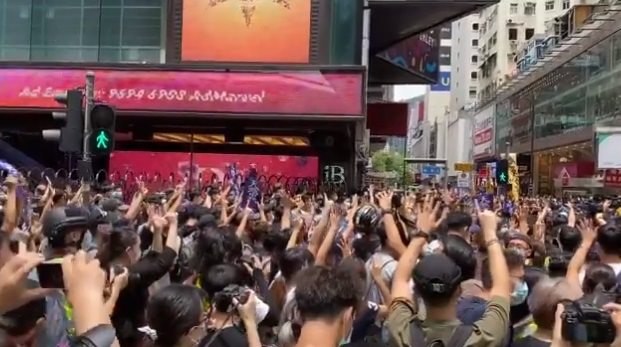'One country, two systems' policy hasn't quite worked out for Hong Kong as the new National Security Law has effectively put the once-democratic nation under China's thumb. But another country, which is also supposed to be part of the same system, Taiwan, isn't bowing down and is facing consequences. Kao Ming Tsun, Taiwan's top representative was reportedly forced out after he refused to accept the demands of Hong Kong authorities.
As per a report by 'Up Media', when Kao, the acting head of the Taipei Economic and Cultural Office in Hong Kong, applied for a visa extension, he was asked to sign an affidavit supporting the 'One China policy' in return. But he refused and returned to Taiwan on July 16.

'Unnecessary Obstacles'
Kao was appointed in place of Lu Chang Shui, who also faced similar problems and his visa extension application remained pending since 2018. But now, such 'delays' have increased significantly after Hong Kong enacted the new law and imposed "additional political conditions" as per Minister of the Mainland Affairs Council (MAC) of the Republic of China, Chen Ming Tong. He added that this was "unacceptable" and that Hong Kong overlooked the importance of the office which facilitates diplomatic exchanges between the two countries.
MAC in a statement to Reuters said that Hong Kong should follow mutual agreements to ensure the office is free from political interference. "They should not establish unnecessary obstacles beyond those agreements," it added.
Other Taiwanese Government officials said that while they would not accept such demands, they would continue to negotiate the extension of Lu's work visa. "It is unacceptable for us to accept the political threat of 'One China policy' but we still hope to find a long-lasting strategy to develop relations with Hong Kong," an official told Up Media.
However, the official also threatened to resort to counter-measures if Hong Kong continued with their demands. "I urge the Hong Kong Government not to damage the rights and interests of our nation or we will resort to countermeasures," he said.

Taiwan's Refusal to Be Part of Mainland China
Unlike Hong Kong, Taiwan is a self-proclaimed republic and has refused to comply with Beijing's "One China policy". But since Tsai Ing Wen of the Democratic Progressive Party (DPP) took over as the President of Taiwan in 2016, the tensions between Beijing and Taipei have only increased.
Hong Kong, which is an important channel for Taiwan for trade and investment with China, doesn't recognize diplomatic relations with Taipei. But Tsai agitated the Hong Kong Government when she offered assistance to the pro-democracy advocates. "In face of the changing situation, the international community has proactively stretched out a helping hand to Hong Kong's people," she said in 2019 in support of the protests.
Earlier this month, Taiwan even released a travel advisory for Taiwanese instructing them on Hong Kong's new national security law. Taipei also warned its citizens that those, who expressed their supports to the Hong Kong protests on social media, could be affected. Apart from that, last week, Taiwan also announced that it will closely monitor the investments from Hong Kong to thwart any illicit money from mainland China making it to the island nation.








